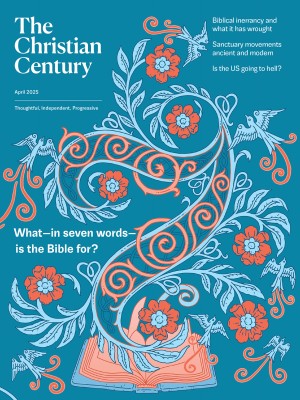April 13, Passion C (Isaiah 50:4-9a; Psalm 31:9-16; Luke 23:1-49)
What do we do with our powerlessness?
They “stood at a distance, watching.” This detail in Luke’s Gospel haunts me: how Jesus’ friends and followers, including the women who have journeyed with him from Galilee, can do nothing but witness his suffering from afar. The sense of powerlessness they must feel, maybe even shame, is something we all have perhaps experienced at one moment or another. Today, we have more access than ever to witness atrocities. What does one do with such powerlessness? With the knowledge that sometimes bearing witness is all we can offer?
Like those witnesses at Calvary, I feel the familiar weight of helplessness—and sometimes a rush of shame at my own privilege to stand at a distance and watch.
But the gospel writer doesn’t condemn these distant witnesses. Their presence, even at a remove, is recorded as its own kind of testimony. They stay. They don’t turn away. Sometimes bearing witness, carrying the weight of seeing and remembering, is its own holy act. The women who watch Jesus die will become the first to proclaim his resurrection. Their seeming powerlessness transforms into testimony, their witness becoming a voice that lingers still.
Read our latest issue or browse back issues.
The Passion narrative shows us how suffering often comes with witnesses: the lamenting crowd, the centurion, even Jesus’ fellow cross-bearer. Suffering doesn’t generally happen in isolation today, either. There are always the nurses checking vital signs, the onlookers recording a deadly police encounter, the doulas, therapists, social workers, ministers, and chaplains who hold space and meet suffering with presence.
“My times are in your hand,” writes the psalmist. These words echo through centuries of human suffering and speak to something beyond resignation. The psalmist’s request for deliverance is like casting a vote in the hope for meaningful change. Deep within us, we know there is a different way to live and be in relationship to each other and the planet that sustains us.
Isaiah speaks of offering his back to those who strike, his cheek to those who pull his beard. The image of voluntary vulnerability makes me wince, especially in the face of those who do not have the option to move away from suffering. Yet I find some form of solace in the words, “the Lord God helps me; therefore I have not been disgraced.” This assertion of quiet dignity reminds me of Rosa Parks’s response to the bus driver who threatened her with arrest. “You may do that,” she is reported to have said, subtly shifting the dynamics of power in the equation.
We witness Jesus shifting the power dynamics as he dies on the cross. The scene unfolds with excruciating detail–the mock trial, the crowd’s betrayal, the soldiers’ casual cruelty. “Father, into your hands I commend my spirit,” he finally says, words borrowed from Psalm 31. “Be gracious to us,” I echo. “We are in distress.” I pray these words both as a kind of soft defiance and to give voice to what I see unfolding in my community. The psalmist writes that he has become a broken vessel. “There is a crack in everything,” Leonard Cohen famously writes in his song “Anthem.” “That’s how the light gets in.” I like to think that perhaps this is also how the light gets out.
Before he dies, Jesus gathers with his friends for that last Passover meal, transforming an ancient remembrance into something new. The bread and wine, elements that have always spoken of exodus and liberation, become vessels representing his own body and blood. “Do this in remembrance of me,” he says, knowing how taste and memory intertwine, how the body holds what the mind might forget. Every time we break bread together, every time we lift the cup, our bodies remember what our hearts sometimes struggle to grasp—that love and suffering, communion and sacrifice, are bound together in this meal.
I think about the disciples in this story, how the familiar tastes of Passover mingle with the strangeness of Jesus’ words. Do they sense the weight of the moment as they eat the bread and pass the cup? Does Thomas run his finger along the rough surface of the bread in an unconscious attempt to memorize its texture? Does John savor the wine longer than usual, knowing somehow that everything is about to change? Like the women who will later stand at the cross, they are witnesses, just as we are now.







